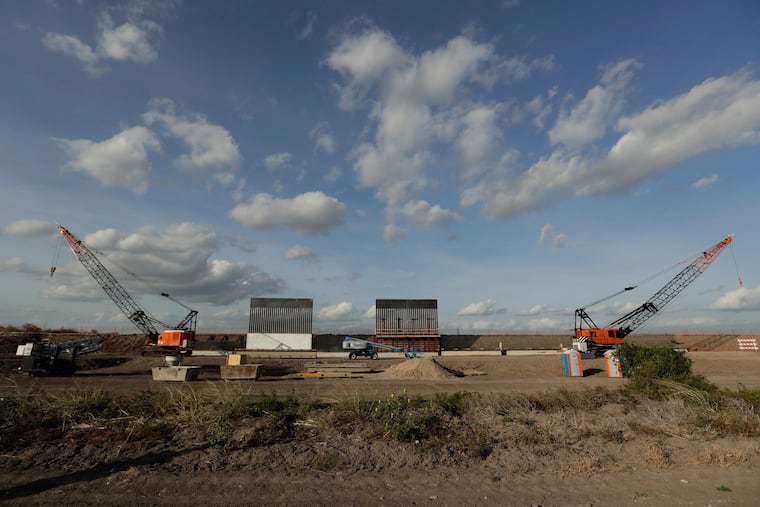Judge blocks Trump plan to spend $3.6 billion in military funds on border barrier
The ruling deals a blow to the president's pledge to complete 450 miles of new barriers by the end of 2020.

A federal judge in El Paso, Texas, on Tuesday blocked the Trump administration’s plan to pay for border barrier construction with $3.6 billion in military funds, ruling that the administration does not have the authority to divert money appropriated by Congress for a different purpose.
The Trump administration was planning to use those funds to build 175 miles of steel barriers, and the court's permanent injunction casts new doubt on President Donald Trump's pledge to erect 450 linear miles of fencing by the end of next year.
Judge David Briones of the Western District of Texas, a Bill Clinton appointee, said in his ruling that the administration's attempt to reprogram military construction funds by emergency proclamation was unlawful, and that the plaintiffs in the case were entitled to a permanent injunction halting the government.
A ruling Briones issued in October placed a temporary hold on Trump's plan to use the funds, but that decision did not have a nationwide scope.
The Trump administration has budgeted nearly $10 billion for barrier construction to date, so the ruling affects roughly one-third of the money the president plans to spend on his signature project. Briones’s decision does not apply to other money available to the administration, including reprogrammed military counter-narcotics funds.
The ruling was the first instance of a local jurisdiction successfully suing to block construction of Trump's border barrier.
El Paso County, one of the two plaintiffs in the suit, had argued that the new border barrier was unwanted by the community and would inflict permanent harm on its reputation as a welcoming, cross-border place.
Kristy Parker, one of the attorneys for the plantiffs, said the decision meant the president cannot spend money on the project that wasn't authorized by Congress.
"The president can't use the National Emergencies Act to override a congressional appropriations decision," Parker said. "That specifically means he cannot use funds appropriated for military constructon and divert it for use to build border barriers."
The Trump administration is expected to appeal the decision.